Over 150 higher education leaders, including nearly two dozen college presidents, convened in Washington D.C. on Tuesday morning to help navigate prejudice and polarization on campuses amid the ongoing Israel-Gaza war.
Organized by Interfaith America, in partnership with the American Association of Colleges and Universities (AAC&U), the “Advancing Campus Pluralism: Bridgebuilding Across Difference” convening brought together representatives of over 62 campuses and 21 higher education associations, nonprofits, and the media. Through multiple plenaries and discussion sessions, the convening focused on ways to promote cooperation across political, ideological, and religious divides on college campuses.
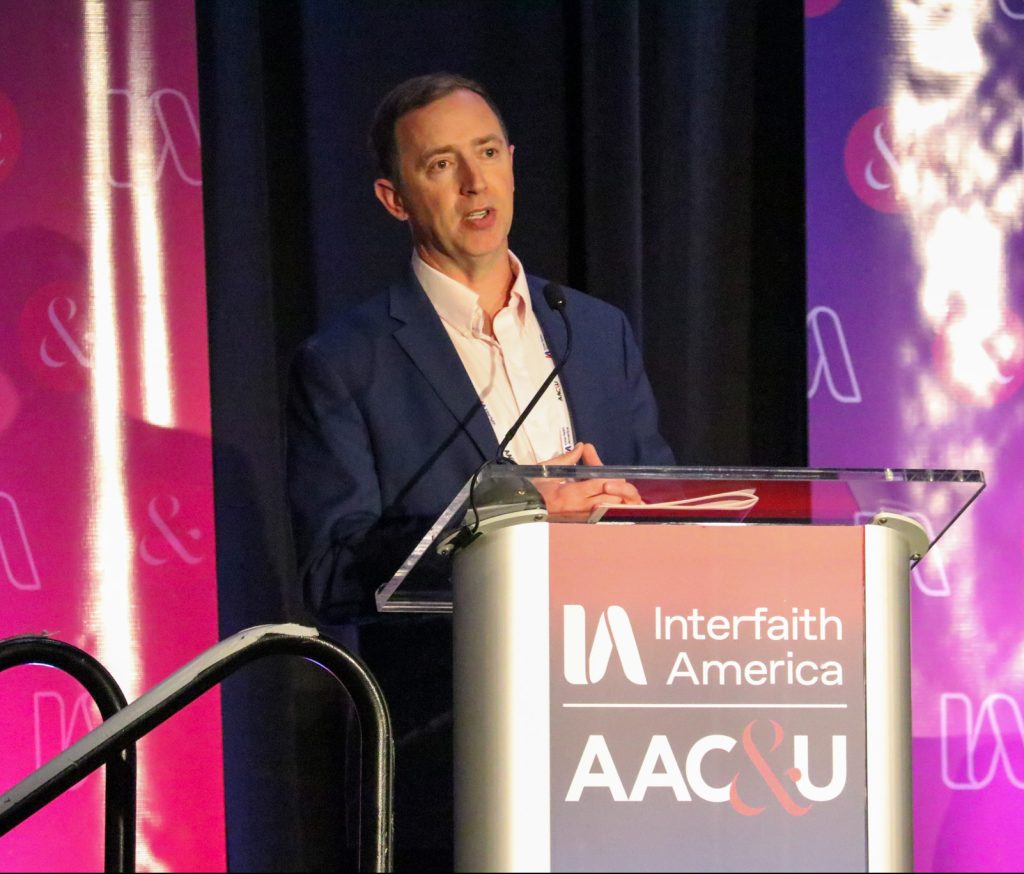
“The most important thing I want people to take away from the entire conference is hope,” said Todd Green, Interfaith America’s director of campus partnerships.
He added, “I think many people have come here because they’re looking for a constructive way forward. I hope everyone leaves here hoping it is possible to bring people together to collaborate across deep differences at a time when universities are all too often viewed as sites of polarization and division.”
In response to the ongoing Israel-Gaza war, college campuses across the U.S. have been thrust into the national spotlight as flashpoints for hundreds of student-led protests, highlighting discourse on rising Islamophobia and antisemitism across the nation.
“I think the greatest challenge is the ongoing work to translate what we mean by pluralism and what a commitment to pluralism entails in a way that’s seen not as antagonistic but rather as complementary to ongoing diversity work on college campuses,” added Green.
Melissa Rogers, the executive director of the White House Office of Faith-Based and Neighborhood Partnerships under the Biden-Harris Administration, gave opening remarks at the convening, highlighting how the Department of Education addresses the rising polarization on campuses.
“If you go to their website … you can find practical resources for educators and school leaders, offering examples of fostering inclusive learning environments for students of all faiths, races, and identities. And we hope these resources will be helpful to you not only at this moment but also far beyond,” Rogers said.
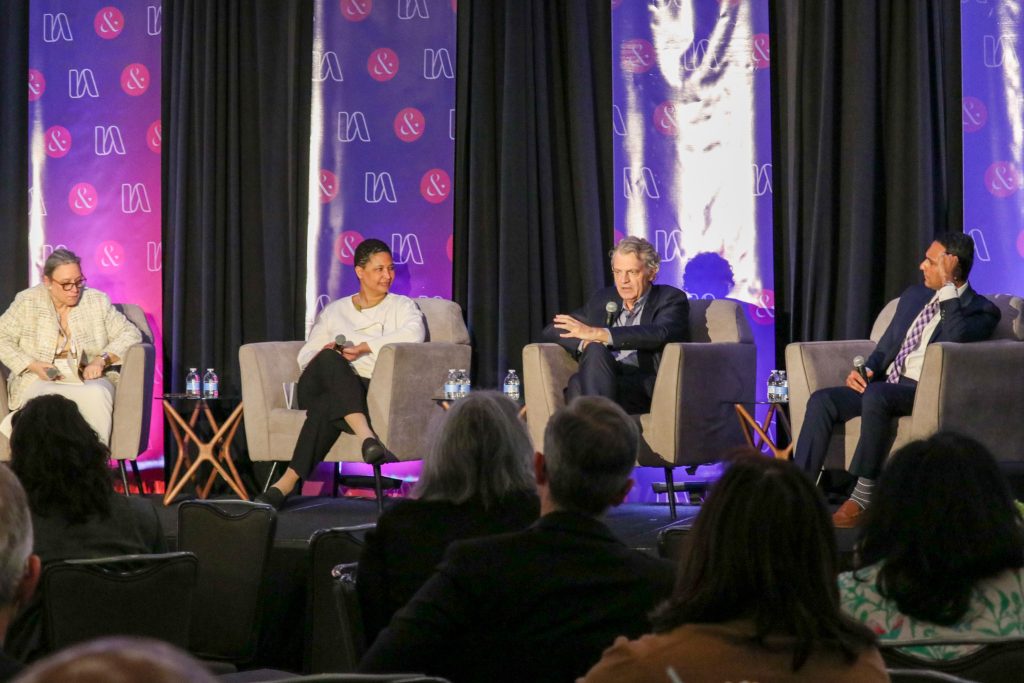
In her closing remarks, Rogers emphasized the need for everyone to build bridges across differences. “When tragedy strikes, we all need safety and acceptance. We all need compassion and kindness. We all need wholeness and peace. President Biden often says, ‘There’s more that unites us than divides us.’ We look forward to continuing to work with you to strengthen the country that we love.”
Eboo Patel, founder, and president of Interfaith America, led an opening plenary session on “The Promise of Pluralism in a Time of Prejudice and Polarization,” with panelists Danielle Allen, professor of political science at Harvard University; Daniel Diermeier, chancellor of Vanderbilt University; and Laurie Patton, president of Middlebury College.
“Together, we can be a new wholeness,” says Patel. “We’re in a molten moment in which we’re setting precedents that can create a routine of pluralism. So, what happens now matters.”
The panelists discussed the importance of pluralism in higher education, highlighting the need for students to understand and respect different perspectives. Patton highlighted the transformative power of conflict resolution skills and urged educators to provide students with tools to overcome their fears and build relationships.
Patton cited an example from Middlebury to highlight her point. “We had a group of Jewish and Muslim students, purely by accident last spring, focusing on deliberative dialogue between Israelis and Palestinians. Their only purpose was in scaffolded dialogue; the goal was not to discuss the issue, not to exchange ideas about it, but to say one brave thing they wouldn’t have said anywhere else. As a result, those same students would maintain relationships when the October 7 attacks happened.”
Patton adds, “They came together, and the Jewish students baked challah, and the Muslim students bought it. They made a ton of money, and everyone started buying bread, which they donated to the World Central Kitchen. The students were the model for us. Are there still tensions? Absolutely. But that kind of work was possible because they had a relationship. And they had been brave together. So, those are the things we’re seeing by giving students tools. This is what I feel is our moral obligation as educators.”
The convening also featured sessions led by faculty and senior leaders from Interfaith America, AAC&U, and various campuses. These sessions examined how both institutional and student-led campus programs can help promote civic pluralism.
“What’s clear [from this convening] is the need for us to work together, to model what it means to be in a pluralistic society, to honor our diversity and difference as well as the things that we hold in common,” says Kevin Brown, chief diversity officer at Spring Arbor University. “What’s interesting is that it can be hard for folks to realize that you can hold them both together and that it is not one versus the other.”
He adds, “I’m excited that Eboo Patel and the folks at Interfaith America wanted to have this convening, to bring some folks together to continue to stoke the fires, if you will, of change and to help build momentum as we move forward.”
We Can Build Bridges
This free, interactive online course shows bridgebuilding in action, defines the goals of bridgebuilding, and gives steps to build bridges in your own life.
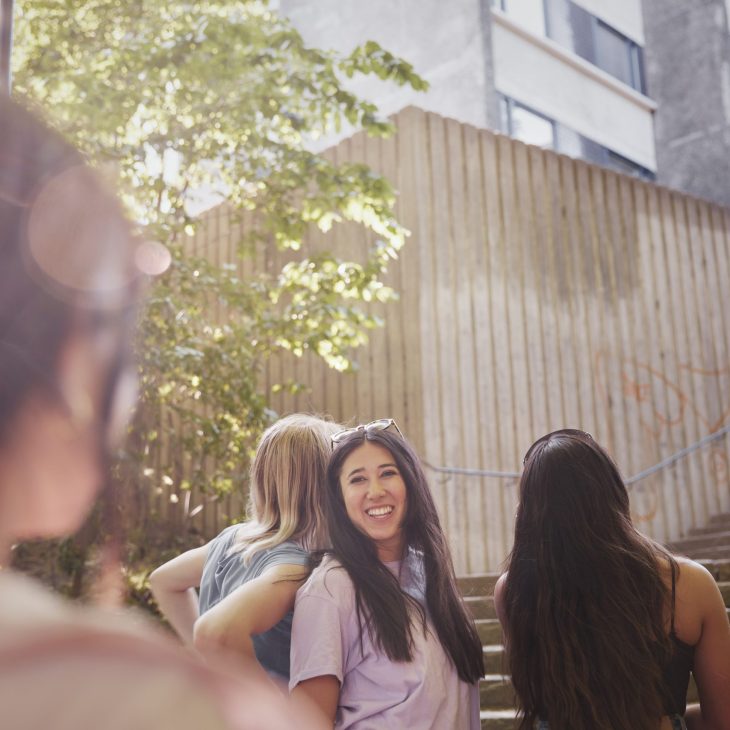
Latest Articles
-
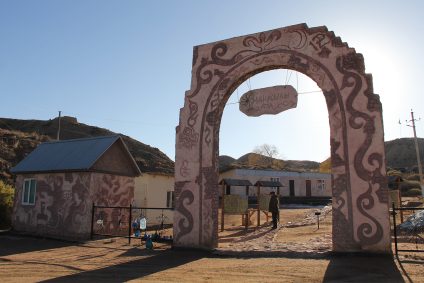
American Civic Life
Once Protected by its Remoteness, a Sacred Lake in Kyrgyzstan is Threatened by Change
April 26, 2024
-

-
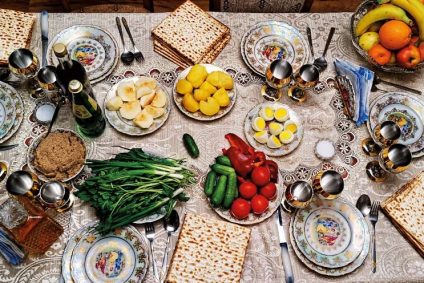
-
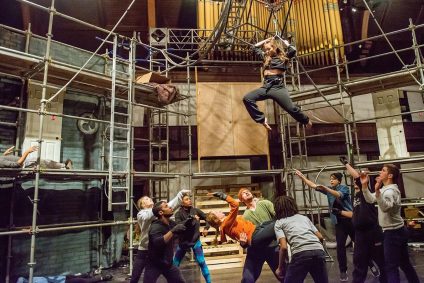
-
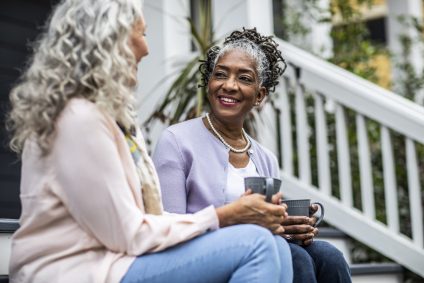
Interfaith America Interview
"You Desperately Need Rest," Author Dalton-Smith on Sacred Rest
April 16, 2024
Join us today
Get inspired, equipped, and connected to unlock the potential of America’s religious diversity.